Political Friendships on College Campus
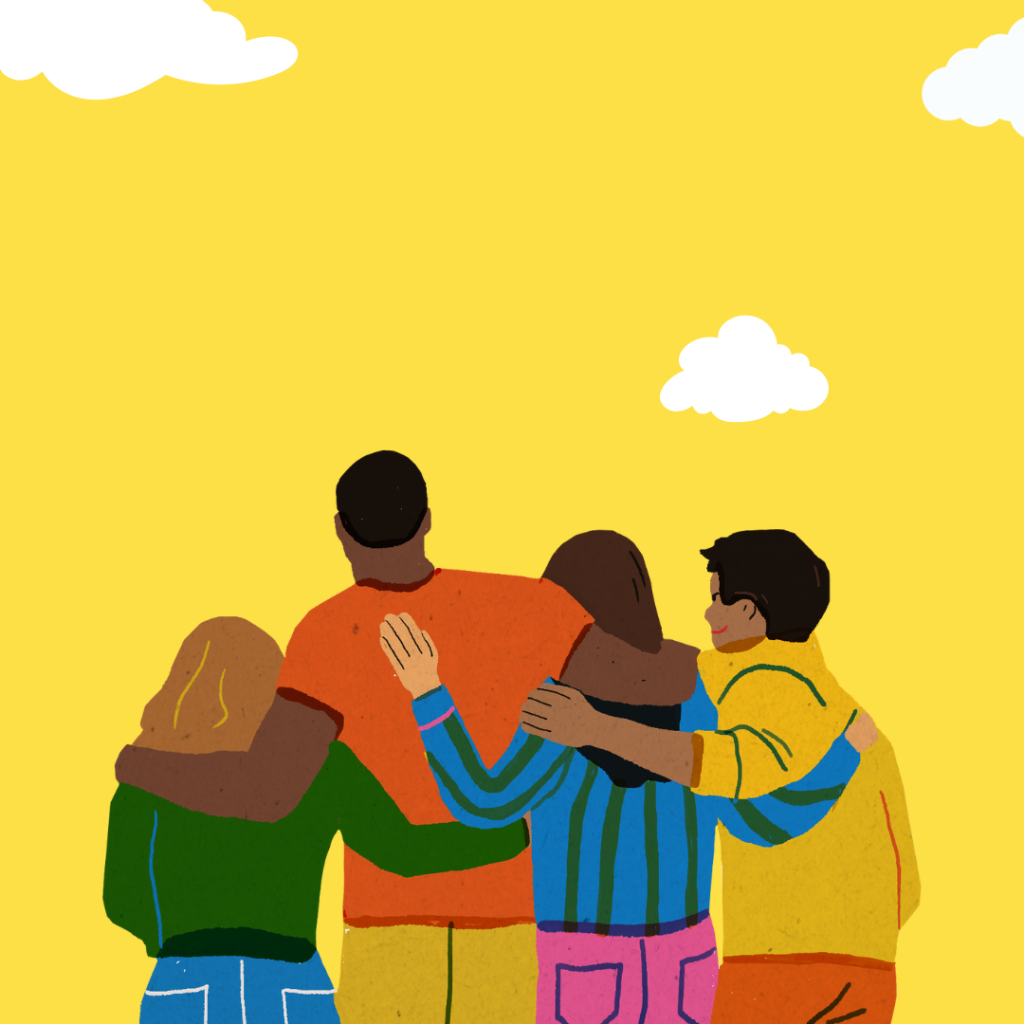
On college campuses everywhere, people find their own “clicks” or group of friends.
With the political climate being intense since the 2016 election, college students and people everywhere have made the decision to not be friends with someone who does not share the same political beliefs as them.
“It’s perfectly understandable. There’s adults of all ages who don’t want to be friends with people who don’t share their political beliefs. It’s more true now than it has been, because so many political beliefs are aligning with other identities,” said Monica Guzman, a journalist and a Senior Fellow for Public Practice at Braver Angels, a nonprofit working to depolarize America and bridge the political divide in their everyday lives.
According to a survey conducted by the Center for Information and Research on Civic Learning and Engagement (CIRCLE), a majority—67%—of young adults reported that they could be friends with someone who voted for a different presidential candidate than they did.
Students from political clubs all across the country share different perspectives on the life of being a student with different political views or similar to their school’s population.
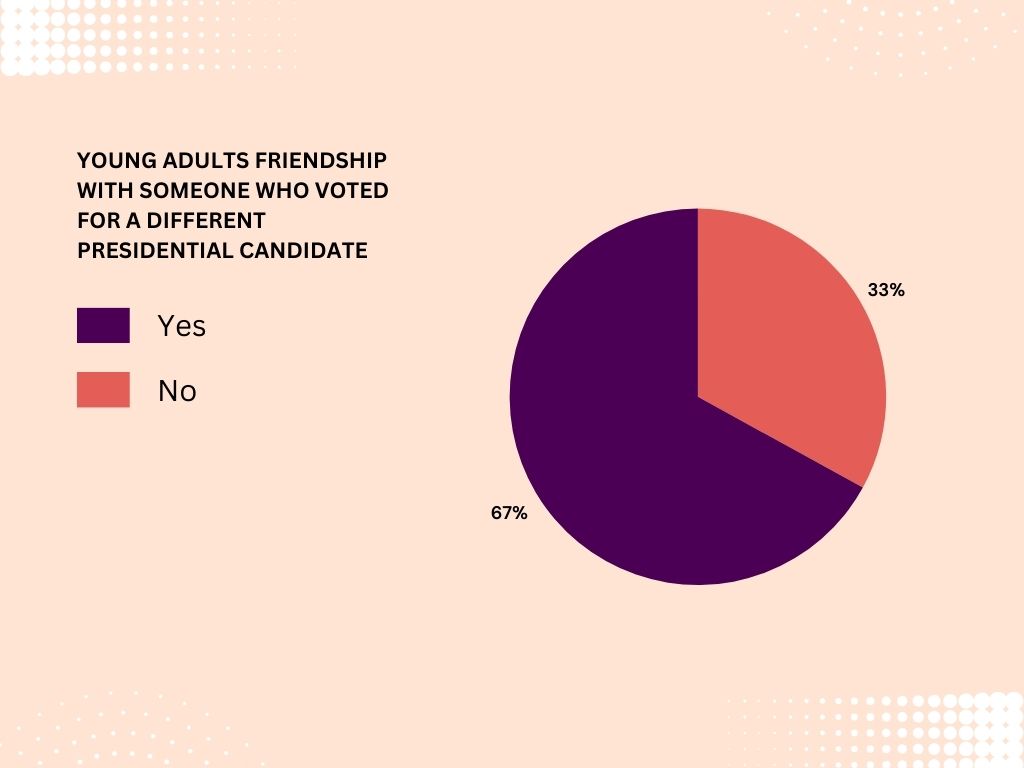
In a study done by the Interfaith Diversity Experiences and Attitudes Longitudinal Survey (IDEALS), the company examined the personal and contextual factors that predict interpartisan friendship formation among 5,762 college students attending 118 higher education institutions in the United States. The findings revealed the constellation of individual, social, and institutional contributors to students’ capacities to reach across political differences in their friendships.
“I would rather have like 10 friends that are hardcore,” said Utkarsh Jain, a junior at the University of California, Berkeley and the President of the College Republicans.
Jain grew up in a conservative household and from a young age and prioritized friendships with people who share similar beliefs.
“If they (students at Berkeley) hear something about you that might lead them to conclude that you’re conservative….they will automatically push you aside,” said Jain. Being a conservative at UC Berkeley is not easy and word gets around quick.
According to YouGov, a global public opinion and data company, nearly a quarter of Democrats (24%) say they are not friends with anyone who holds very different political views from them, a 14-point rise from when YouGov asked the same question in September 2016. Independents show an 8-point increase (12% to 20%) in not being friends with those who have opposing political views, while Republicans have not changed significantly (10% to 12%) in the last four years. None of the political parties have grown more likely to share a friendship with those who do not hold similar opinions.
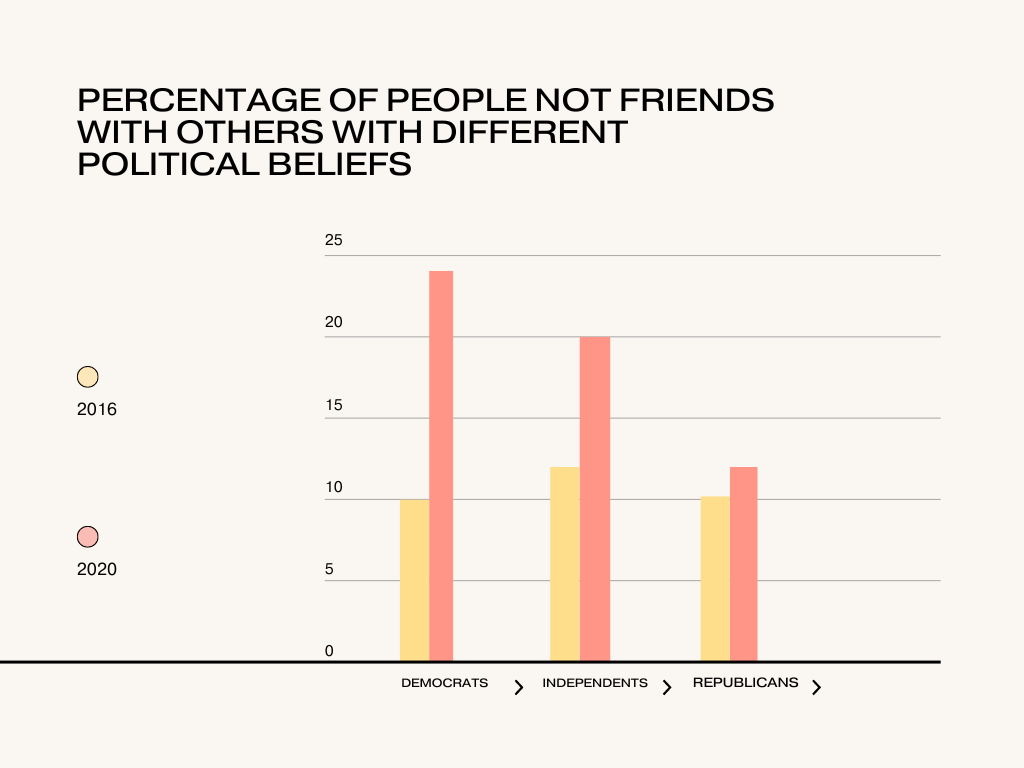
To some people college can be a place where your perspectives and beliefs are either challenges or agreed upon.
Tyler Brown-Dewese, the President of the College Democrats at American University came into college as a right-leaning independent.
Brown-Dewese transitioned into being a Democrat after his beliefs got challenged by a professor.
Since his ideology shifted after coming to AU, Brown-Dewese does not mind what potential new friends believe in.
“I don’t really care if you’re a democrat or republican or independent. If you’re a cool person, I’m gonna hang with you,” said Brown-Dewese.
At the University of North Georgia, a military college, being a Democrat is challenging. For students like Anna Mathis, who is a member of the UNG College Democrats, the issue is finding people to be friends and how conservatives at her university look down upon her and other Democrats.
“I think once you find those people it’s not difficult to make friends. I think finding them is the difficult part because there are a lot of conservatives and you know, from my personal experience, when conservatives and I interact, I feel as though they think I’m stupid,” said Mathis.
“It’s difficult to be friends with conservatives when you know, they like the demos down at you.”
Dr. Tara Hudson, an Associate Professor of Higher Education Administration at Kent State University has an answer to why students do not tend to seek friendships from people who have different beliefs.
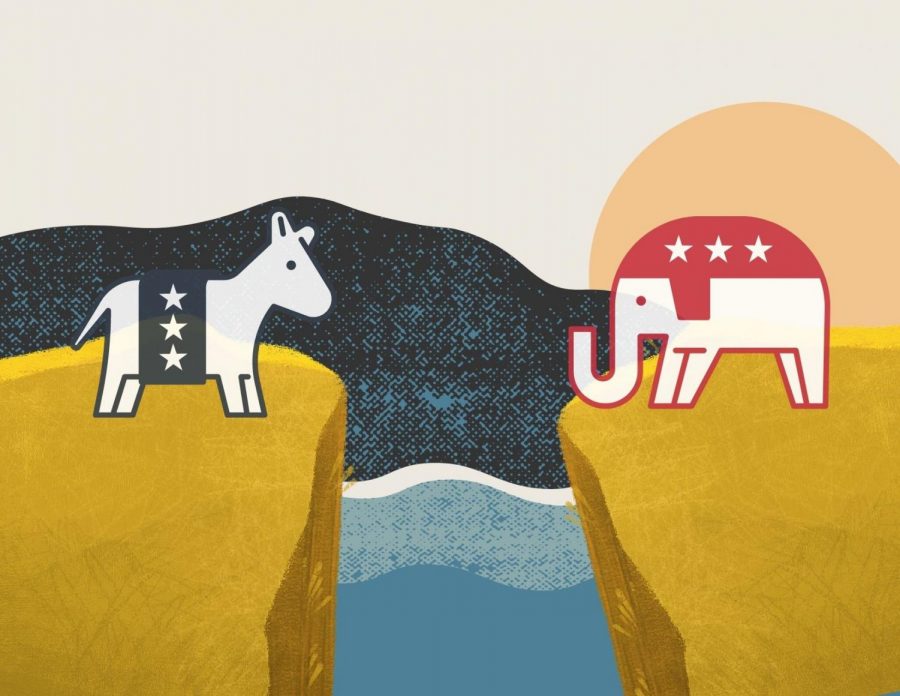
“When you sort of have to risk your own right to be who you are in order to form a friendship or even just interact with someone you know, on the other political side, then it becomes a very difficult situation because the stakes are high and the risk of harm is higher,” said Hudson.
Many people either do not enjoy or care about interacting with people who do not share their same beliefs.
For Christopher Coffey, who serves as the President of the College Republicans at Lee University in Tennessee, a private Christian institution, he relishes being able to be around different people.
“I’m blessed to be doing an internship with a lot of people from across the political spectrum and it’s been kind of a blast.”
Coffey, a political science major, recommends being mindful when being in a friendship with someone who shares different views.
“If you’re going to enter into a debate with someone about it, make a very conscious effort to make sure that your friendship stays together,” said Coffey.
Dr. Alyssa Rockenbach, a Graduate Professor in the Department of Educational Leadership, Policy, and Human Development at North Carolina State University thinks for people to be open to making friends with one another, it starts with being sincere.
“It does come back to people having the chance to have real conversations with each other. And to do that requires building trust first,” said Rockenbach.
“That way they can share their stories, which can build those bridges and create greater empathy.”
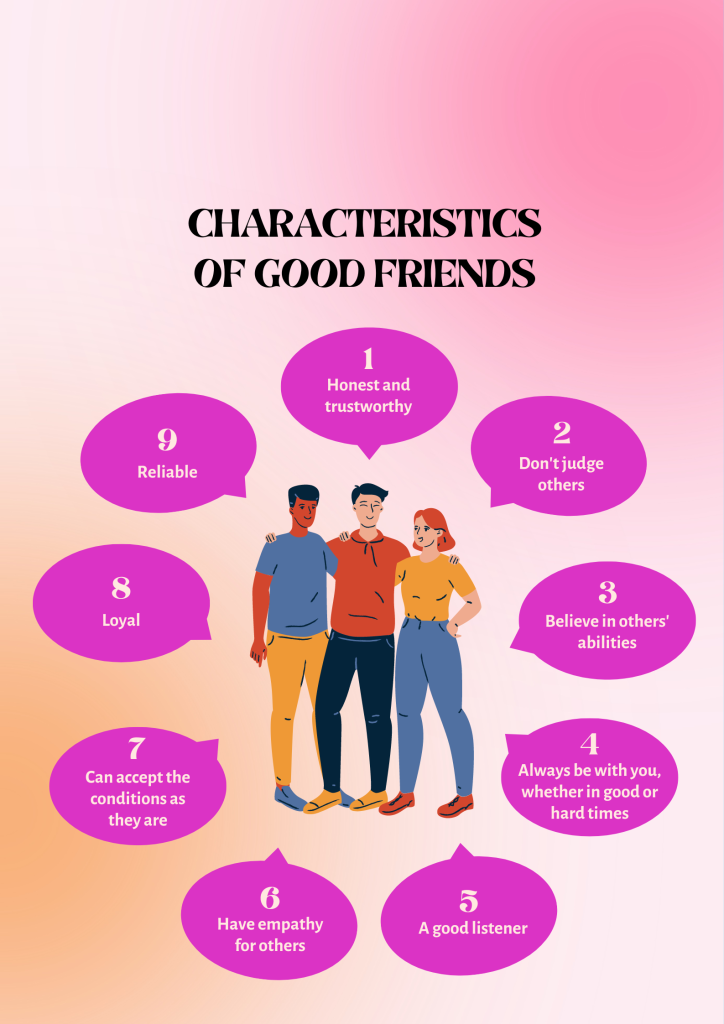
There is so much potential for college students to evolve and accept everyone for having different political beliefs. Everything starts with listening.
“While it may be true that one side has gotten to more truth about an issue or has gotten to what is ultimately a better answer,” said Guzman.
“Exploring the reasons the other side has for resisting some things, digs up the truth of people’s concerns, takes up the kind of truth that you would need to persuade the whole of society that something is a better idea.”
After hearing all these different students and experts’ perspectives, associating only with individuals who share your political views creates an echo chamber where dissenting opinions are silenced or disregarded, leading to intellectual stagnation due to limited exposure to different perspectives and critical thinking skills which may go underdeveloped.
Without being exposed to diverse political viewpoints, people’s understanding of complex political issues may remain superficial or one-sided. Engaging with friends and individuals who hold differing political opinions deepens knowledge of all their nuances and complexities surrounding these issues, providing more informed and balanced perspectives.
Building friendships between people from various political backgrounds fosters empathy and understanding of individuals with differing lived experiences and perspectives. Without these relationships, it becomes challenging to connect with those holding opposing political beliefs and that can lead to further division within society.
Interacting with friends and people who hold different political beliefs is an enriching learning experience, offering invaluable opportunities for growth, self-reflection, and personal development. By participating in respectful yet open-minded discussions you can expand your horizons, challenge assumptions and gain new insights into political issues.